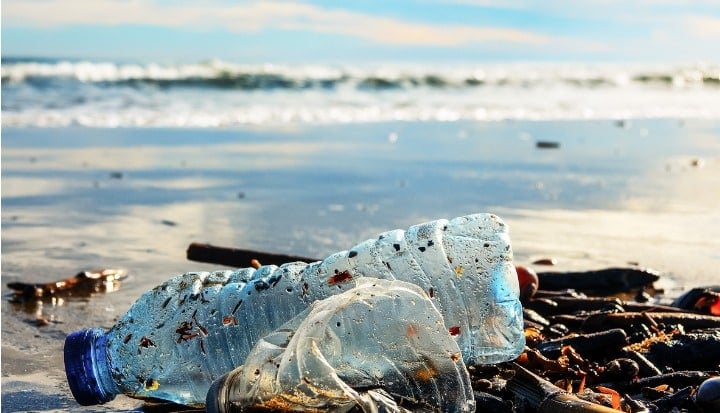The demand for personal protective equipment (PPE) in response to this year’s COVID-19 pandemic has seen single-use plastic waste soar across the globe. The use of face masks in China alone is 12 times higher than pre-pandemic levels, with people getting through 116 million a day in February. If the whole world were to use daily disposable PPE, the waste would amount to 129 billion face masks alone within a month. More widely, the global market for plastic packaging is also predicted to grow by 5.5% a year, largely in response to pandemic demand for takeaways and home-delivered groceries.
Yet plastic pollution is choking our ecosystems. Single-use plastics make up about half of the estimated 300 million tonnes of plastic waste produced worldwide each year – 8 million tonnes of which ends up in the sea. Plastic bags alone kill 100,000 marine animals each year, including leatherback turtles – one-in-three of which have been found with plastic bags in their stomachs. And multinational companies, like Coca-Cola, PepsiCo, Nestlé and Unilever, top the annual league tables for plastic waste in developing countries, where their burning and dumping causes environmental damage and health problems for local people.
If business is going to kick its toxic dependency on single use plastics, it will need to radically change how it thinks about the material and be persuaded to use better alternatives. That’s why the University of Birmingham in the UK has set up the Birmingham Plastics Network, a unique team of chemists, social scientists, artists and more who are working together to address the global plastics problem. We want to consider all aspects of plastics – from the human, environmental, economic, regulatory, political and technological. Together we aim to understand the drivers and conditions of our current relationship with plastic – such as the impacts and extent of microplastics – while developing real-world, achievable solutions, like infinitely recyclable polymers.
[iframe src=”https://www.youtube.com/embed/OSneFTtehDo” width=”560″ height=”315″ frameborder=”0″ allowfullscreen=”allowfullscreen”></iframe]
Plastics aren’t intrinsically evil. In many ways they’re a great material used in many products that are essential to life. It’s also critical for delivering on many of the UN’s Sustainable Development Goals around food security, health and clean energy. In fact, the environmental cost of plastic alternatives is estimated to be 3.8 times higher than plastic itself. The issues lie in the way they’re made, used and disposed. Plastics should be viewed as a valuable resource, not as single use, and what we want is a plastic-free environment, not necessarily plastic-free businesses and households. So companies should undertake a plastic audit, examining their workplace, supply chains and customers to assess where usage is essential or avoidable. Whether it’s a legal responsibility or not, there is a reputational risk to unsustainable use of plastic and businesses need to factor in the costs of disposing and reusing plastics safely where its use is essential.
But plastics are a cultural and behavioural problem too, which can be very difficult to change, yet in certain areas we have seen this type of change occur remarkably quickly. It’s down to evidence, collective action, knowledge and accountability. Think about how putting pictures of damaged lungs on cigarette packaging has changed attitudes to smoking. Imagine if every bit of disposable plastic had a picture of sea birds or fish that had died from the plastic in their stomachs. Such interventions combined with widescale education will help change people’s minds that have been conditioned to think plastics equal cleanliness or freshness, when in reality that’s often not the case. With public attitudes and legislation on plastics moving fast, businesses need to take action now to drastically reduce their use and stay ahead of the issue.










